- Letter from the Board of Directors
- Management report
- Key figures
- Foundations for success
- Business model
- Strategy 2030
- Risk management
- Stakeholders
- Organisation
- Sustainability
- ESG governance
- Material topics and SDGs
- Economic impact
- Environmental impact
- Social impact
- Governance
- Corporate Governance
- Board of Directors
- Management Board
- Additional information
- Remuneration
- Remuneration report
- Notes to the report
- CO reference table
- Statement by the Board of Directors
- GRI content index
- Due diligence and transparency
- Financial report 2023
- Vetropack Group
- Consolidated balance sheet
- Consolidated income statement
- Consolidated cash flow statement
- Changes in consolidated shareholders’ equity
- Consolidation principles
- Valuation principles
- Notes
- Ownership structure
- Company participations
- Five-year overview
- Vetropack Holding Ltd
- Occupational safety management systems in our plants (except for Chișinău); half of these are certified to ISO 45001
- Health, Safety and Environmental Policy applicable throughout the Group to ensure uniform standards for occupational safety and health protection
- Key indicator for occupational safety included as an element of the remuneration system for the Management Board since 2023
- Objective of Group-wide TRIR of 2.0 by 2030
- Nine Golden Safety Rules implemented (except for Chișinău)
- Safety Minutes and Safety Days introduced at all sites
- I keep to the rules
- I protect myself
- I don’t enter into any risks
- I look out for others
- At Group level, the Group Director, Corporate Development and Integrated Management Systems (IMS) is directly responsible for quality, occupational safety, sustainability and environmental protection.
- The Group Health and Safety Manager reports to the Group Director, Corporate Development and Integrated Management Systems and collaborates with him to coordinate the activities with the safety managers at the individual plants.
- Plant managers and teams are responsible for applying and correctly implementing the defined safety standards.
- Our employees are responsible for complying with the Safety Rules.
- As an additional measure, we have set up an Occupational Safety Working Group where the Safety Officers of the plants and the Group Health and Safety Manager discuss challenges facing all our sites, exchange knowledge, develop safety concepts and plan their implementation, and conduct occupational safety inspection tours in the plants.
- Occupational safety management system at all plants except for Chișinău; certified occupational safety systems compliant with ISO 45001 are in place at half of our plants
- Health, Safety and Environmental Policy
- The slogan: 'I’m more important than production'
- Four Safety Principles
- Nine Golden Safety Rules
- Safety Days
- The Safety Minutes philosophy
- Internal audits conducted
“
Work in glass production is physically taxing, and it entails hazards. We aim to improve safety at these workplaces through automation and by providing training and equipment.
Nenad Horvat, Safety Manager
SustainabilityOccupational health and safety
Glass production involves high temperatures, noise, emissions and moving machine parts that present substantial risks for the people who work in our plants. This is why we accord the highest priority to compliance with occupational safety legislation and put measures into practice in keeping with the Health, Safety and Environmental Policy that is applicable throughout our Group. This policy, which goes beyond the statutory requirements, helps our employees to carry out their daily work in safety. We also promote our employees’ mental health with measures to raise awareness.
Our understanding of a sustainable business model includes the duty of care towards our employees. Our goals are to promote a safety culture and reduce occupational accidents: both of these are decisive factors in ensuring reliable production. Occupational health and safety are essential to our long-term business success, so they are focus topics with strategic priority. The perception of the Vetropack brand, combined with the highest safety standards, also helps us to attract new talents who are enthusiastic about glass production. We are investing in a workplace culture where the focus is on raising awareness about work-related hazards and continuous learning. Our employees are expected to concentrate as they perform the steps of their work, and to support one another.
Our occupational safety system targets production and production-related areas, and we supplement it with measures to ensure comprehensive health protection. The scope includes ergonomics as well as the protection of our employees' mental health.
Safety rules and safety principles
We aim to establish a Group-wide understanding of an exemplary operational health and safety management system. Occupational safety management systems certified to ISO 45001 are in place at half of our plants. The other plants have equivalent systems, with the exception of Chișinău. We are aiming to achieve ISO 45001 certification for Boffalora and St-Prex in 2024. These systems help us to identify and implement improvement measures on a continuous basis.
Further guidelines to ensure occupational safety include nine Safety Rules and four additional Safety Principles which must be observed by all our employees.
I’m more important than production:
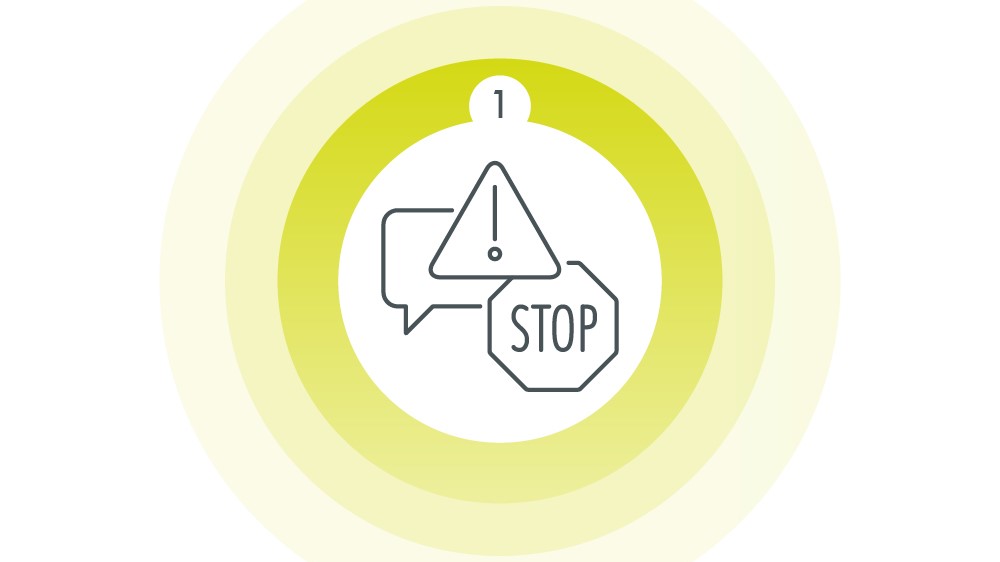)
Rule 1: I respect procedures, signals and warnings )
Rule 2: I respect qualifications and authorisations 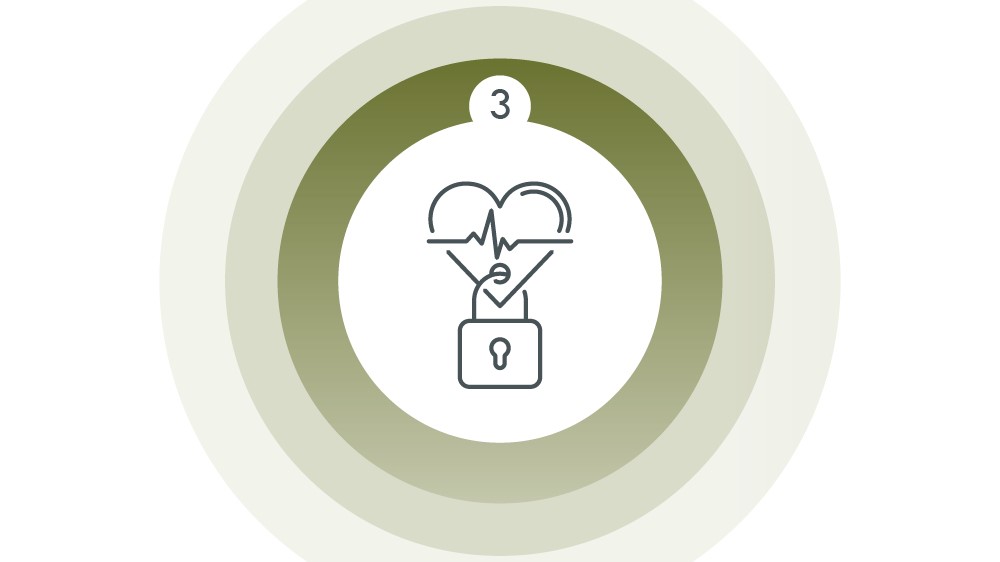)
Rule 3: I respect the LOTO (Lock Out Tag Out) procedure 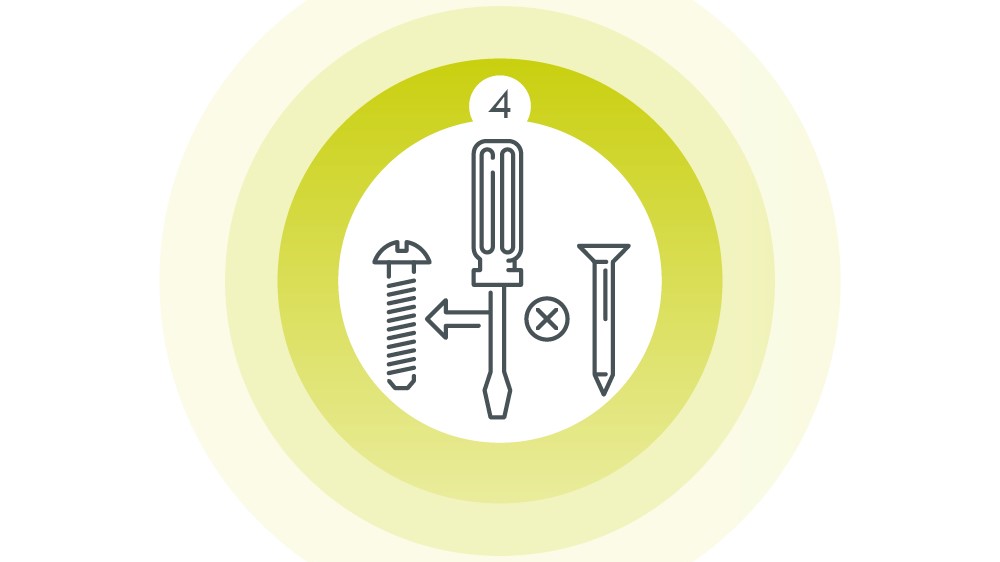)
Rule 4: I use appropriate equipment 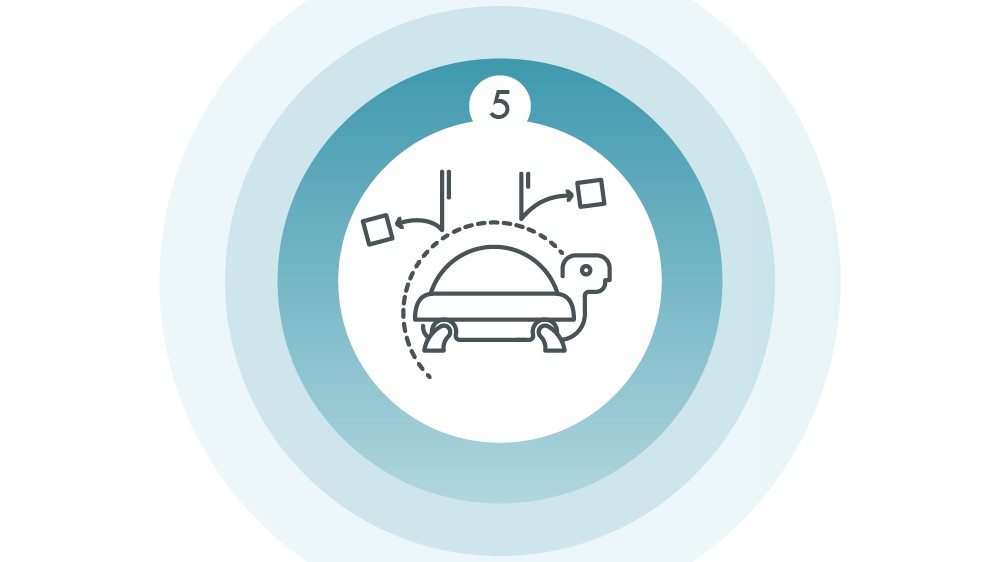)
Rule 5: I wear my personal protective equipment (PPE) )
Rule 6: I never disable or bypass a safety device 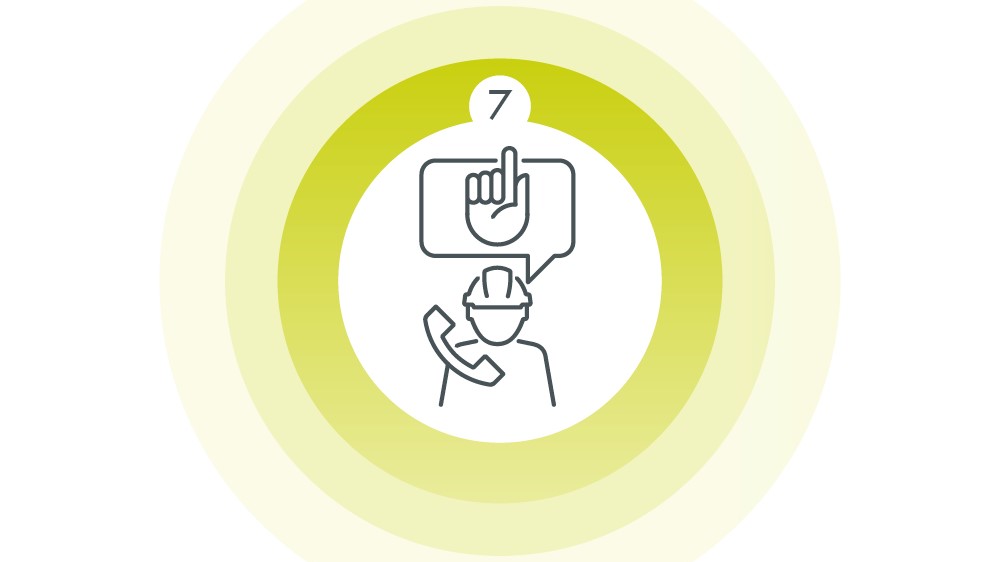)
Rule 7: I report unsafe conditions or behaviour 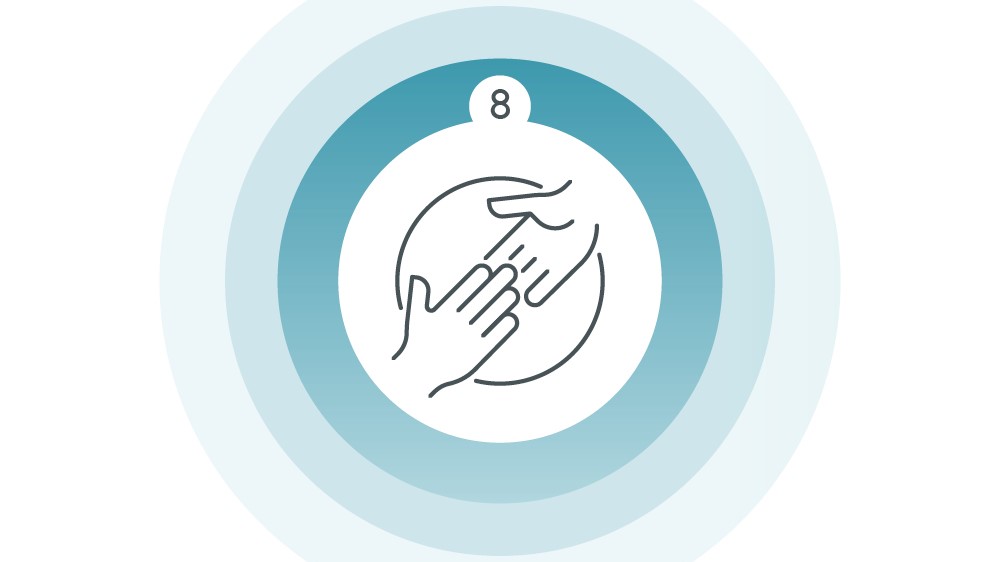)
Rule 8: I feel responsible for others 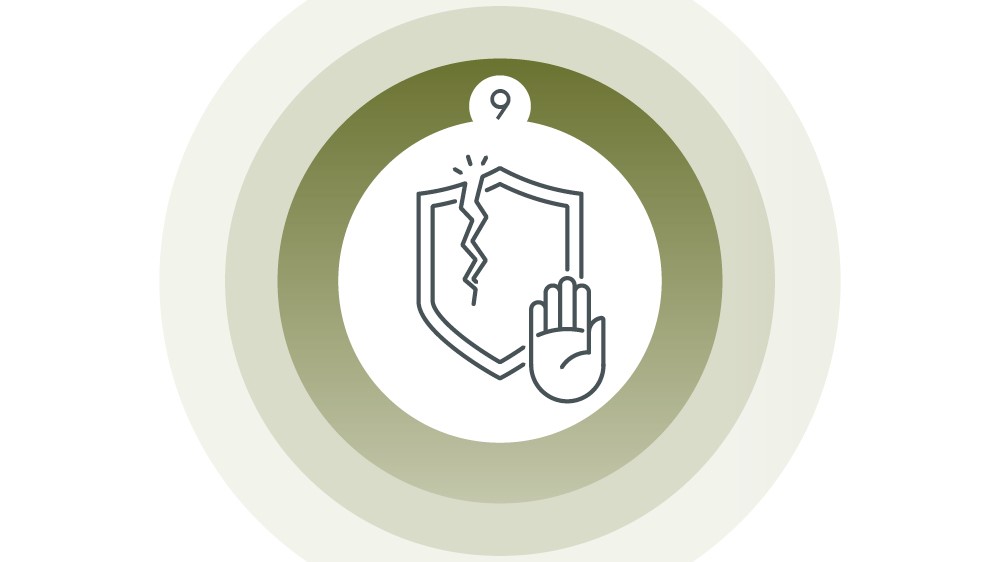)
Rule 9: I stop work if I can’t work safely We communicate these Golden Rules to our employees by holding Health and Safety Days and offering regular training at all our sites.
Safety goals are relevant for Management Board’s remuneration
Our key performance indicators for occupational safety are the Total Recordable Incident Rate (TRIR) and the Total Recordable Incident Severity Rate (TRISR). To highlight the strategic relevance of occupational safety, the Group has set itself a goal for the TRIR since 2023. The attainment level for this goal influences the bonus for the Management Board and senior management. The figure for 2022 was 2.4 and we set 2.2 as the target for 2023. We achieved 2.85. As well as reducing TRIR as an ambition for the Group as a whole, our plants also set their own individual occupational safety targets.
Multi-level health and safety management
We control our occupational safety policy at various levels.
Health, Safety and Environmental Policy
Our Health, Safety and Environmental Policy, applicable throughout the Group, contains key principles to ensure occupational safety and health protection for our employees. Every plant must have an appropriate concept in place. The policy states that potential health and safety risks must be identified on a regular basis and safety concepts must be implemented; it also stipulates that all our employees must be provided with the appropriate protective equipment and should complete training and awareness-raising programmes.
Systematic occupational safety management
So that Vetropack can assess the effectiveness of the measures we implement and measure our progress, we conduct safety audits, record key performance indicators, and ensure that the continuous improvement process is in place. In addition to our occupational safety policy and our multi-level occupational safety management system, we provide training for our production employees. For prevention purposes, we record and evaluate near-accidents at most of our sites. Accidents are analysed so that steps can be taken to avoid them in future. The Business Unit Heads meet each month to exchange knowledge acquired about occupational safety. The Occupational Safety Working Group also conducts internal audits to evaluate compliance with the occupational safety guidelines and monitor implementation of the improvement measures.
The Safety Minutes philosophy
Experience shows that occupational safety principles – even if they are familiar – may be violated due to time pressure. Knowing this, we deliberately make provision to focus on this topic. Safety Minutes are short training sessions, usually lasting less than ten minutes, when relevant safety information is presented in a brief and concise format.
Guidelines, policies, supervisory and control instruments
Progress and events in the reporting year
Training on occupational health and safety in ItalyAt the end of 2022, Vetropack launched a pilot project in Italy with the focus on raising awareness about healthy lifestyles and wellbeing. Employees from various plants joined together to complete training courses on topics such as avoiding unhealthy habits, balanced diet, and the work-life balance. We are aiming to extend this project to other sites going forward.
High level of occupational safety during construction work at BoffaloraExemplary implementation of a systematic safety concept has been an outstanding feature of the construction project for the new Boffalora plant, carried out under Vetropack’s overall responsibility. This concept will serve as a model for future construction projects. It is pleasing to report that no significant occupational accidents were recorded during about 18 months of construction work with over 800 workers involved simultaneously at certain times.
Fully automated warehouse ensures safetyBoffalora is equipped with a fully automated state-of-the-art warehouse for finished products. Avoiding manual activities not only enhances quality but also prevents hazardous situations at the human-machine interfaces.
Attaching more value to lunch breaksIt is important to interrupt the working day with one fairly long break, and to take appropriate nourishment for the activities undertaken during the working day. With this in mind, we make sure that our canteens offer balanced meals in an appealing environment. This helps our employees to relax, boosts their motivation, and makes them able to perform better. To achieve these aims, we renovated our canteens at Kremsmünster and Bülach in the year under review. The new canteen in Boffalora has also been built according to the same principles.
Optimal working environment at the new facilityAt our new site in Boffalora, we have devoted attention to our employees’ health at all workplaces – in production as well as administration. The design of the production hall allows heat to escape through openings in the roof structure, and the best possible acoustic insulation is in place for the machines. A distinctive colour concept also ensures optimal working conditions, and the new office building in Boffalora is equipped with state-of-the-art ergonomic workstations.
Raising awareness about mental healthThe mental health of our employees is one of Vetropack’s heartfelt concerns. Our Bülach site launched a cooperation partnership with the Wisli Foundation in 2023. This foundation has a 35-year track record of advocating social and vocational integration for people with mental impairments. In March, for example, Vetropack organised an event focusing on mental health. We collaborated with the Wisli Foundation to raise employees’ awareness and provide them with information about mental hygiene, early warning signals and preventive measures. Our Bülach site will continue to support the Foundation in the future.
Performance indicators
Key indicators for occupational health and safety
+ /–
2023
2022
Fatalities as a result of work-related injuries
-
-
High-consequence work-related injuries (excl. fatalities)
-
-
Recordable work-related injuries
26%
93
74
Total lost work days due to accidents and occupational diseases
8%
2 908
2 681
Total Recordable Incident Rate (TRIR) 1)
18%
2.85
2.41
Total Recordable Incident Severity Rate (TRISR) 1)
5%
91.21
87.13
Operational facilities externally certified to ISO 45001
0%
56%
56%
1) Per 100 full time equivalents (FTE).
TRIR per 100 FTE and target
TRISR per 100 FTE
Ambitious target was not achieved
Vetropack set a standard target for the TRIR indicator at all our plants for the first time in 2023. The limit was an accident frequency rate (TRIR) of 2.2. This goal is based on the benchmark for the glass industry. We achieved a TRIR of 2.85 in 2023. The very wide spread of TRIR results among the plants can largely be attributed to country-specific conditions regarding employees’ training levels and awareness of safety issues. This is why it is still very important to embed our safety culture through awareness-raising and prevention measures together with training. Our goal is to reduce the Group-wide TRIR to 2.0 by 2030.
- Vetropack Group
- Corporate Governance
- Governance
- Social impact
- Environmental impact